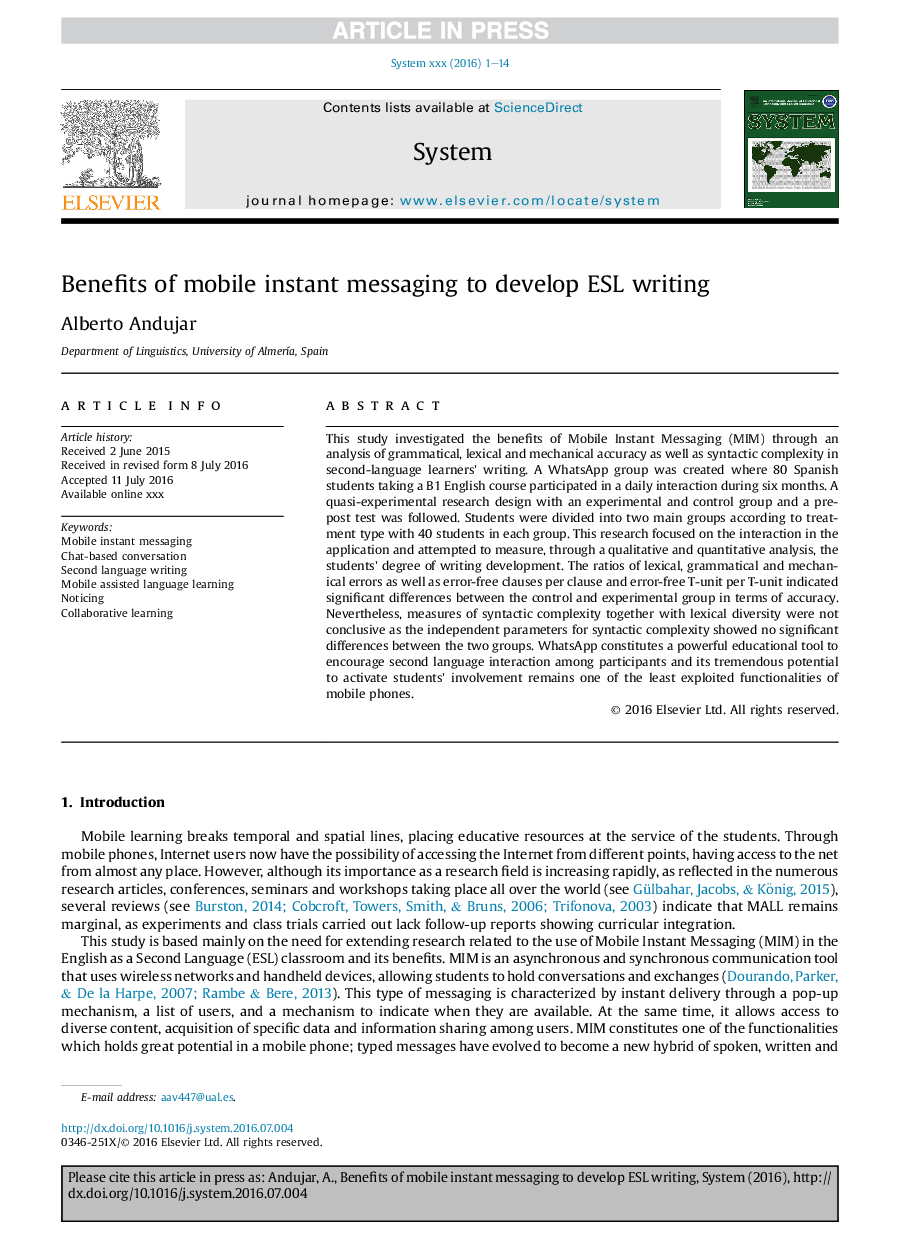| Article ID | Journal | Published Year | Pages | File Type |
|---|---|---|---|---|
| 4941414 | System | 2016 | 14 Pages |
Abstract
This study investigated the benefits of Mobile Instant Messaging (MIM) through an analysis of grammatical, lexical and mechanical accuracy as well as syntactic complexity in second-language learners' writing. A WhatsApp group was created where 80 Spanish students taking a B1 English course participated in a daily interaction during six months. A quasi-experimental research design with an experimental and control group and a pre-post test was followed. Students were divided into two main groups according to treatment type with 40 students in each group. This research focused on the interaction in the application and attempted to measure, through a qualitative and quantitative analysis, the students' degree of writing development. The ratios of lexical, grammatical and mechanical errors as well as error-free clauses per clause and error-free T-unit per T-unit indicated significant differences between the control and experimental group in terms of accuracy. Nevertheless, measures of syntactic complexity together with lexical diversity were not conclusive as the independent parameters for syntactic complexity showed no significant differences between the two groups. WhatsApp constitutes a powerful educational tool to encourage second language interaction among participants and its tremendous potential to activate students' involvement remains one of the least exploited functionalities of mobile phones.
Related Topics
Social Sciences and Humanities
Arts and Humanities
Language and Linguistics
Authors
Alberto Andujar,
